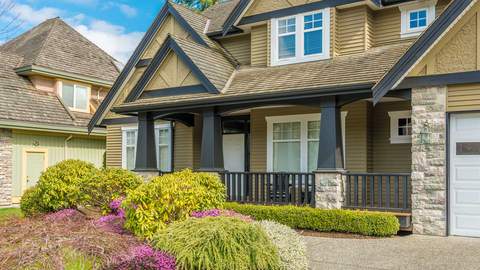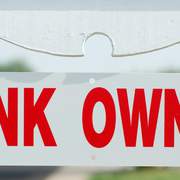Caution is advised when buying homes in foreclosure that are still occupied, here are some issues to consider:
The nation’s housing crisis created new opportunities as well as new challenges for potential home buyers, especially in relation to a large number of homes in foreclosure. Price-conscious home buyers are lured into buying foreclosures by the low prices advertised for these properties. They hope to show up at the auction and win the lowest bid. However, many of these homes are not available for inspection prior to purchase - is it smart to buy a home that you can’t inspect? It could be if the price was low enough to compensate you for the amount of work required to bring the condition of the home up to standards, but don’t forget that there is also a risk of buying a foreclosed home with occupants. If you’re considering buying a home in foreclosure that is currently occupied, continue reading to learn of certain rules and procedures you should consider before purchasing.
The most obvious problem with buying a home that is still occupied is that the occupants may not leave unless you evict them. Eviction can be a long, tedious and expensive process that can take months to complete. If the occupant is the former owner, try to work out an arrangement prior to making an offer on the home. This arrangement should include the establishment of a definitive date that the owner will vacate the premises. Some realtors suggest offering homeowners of occupied foreclosures financial assistance to cover moving expenses in exchange for moving out without an eviction.
 When buying occupied foreclosures that served as rental properties, the process can be even more complicated. There is no issue if you plan to rent the property out as well, allowing the current tenant(s) to remain. However, if this is not the case, evicting a current tenant can be difficult, especially since the passage of the Protecting Tenants at Foreclosure Act of 2009. This law requires that you (the new owner) give the current tenant at least 90 days’ notice prior to eviction. The law requires that the tenant(s) still comply with any obligations under the rental or lease agreement during that time period.
When buying occupied foreclosures that served as rental properties, the process can be even more complicated. There is no issue if you plan to rent the property out as well, allowing the current tenant(s) to remain. However, if this is not the case, evicting a current tenant can be difficult, especially since the passage of the Protecting Tenants at Foreclosure Act of 2009. This law requires that you (the new owner) give the current tenant at least 90 days’ notice prior to eviction. The law requires that the tenant(s) still comply with any obligations under the rental or lease agreement during that time period.
Current occupants may also claim squatters’ rights. A squatter is a person who has occupied a home that she or he does not own and does not have permission to use. While most courts rarely recognize the rights of squatters, these people can still cause a number of problems for you, as the new owner of a property, that will have to be resolved in court. However, as you’ve probably guessed, this can become expensive.
Beware of scams
 One unfortunate byproduct of the national housing crisis, beginning in 2007, has been an increase in foreclosure-related scams. One prevalent one has been the “renting” of properties to unsuspecting tenants by people who have no legal interest in the property. Unoccupied foreclosure properties have been “rented” via services such aswww.craigslist.orgby people who have no authority to do so. Tenants move in, a prospective buyer successfully navigates the purchase of a foreclosure property only to find he or she has “inherited” tenants. Some prospective buyers have spent large sums of money to fight these cases in court while others have paid cash settlements to get tenants to move out.
One unfortunate byproduct of the national housing crisis, beginning in 2007, has been an increase in foreclosure-related scams. One prevalent one has been the “renting” of properties to unsuspecting tenants by people who have no legal interest in the property. Unoccupied foreclosure properties have been “rented” via services such aswww.craigslist.orgby people who have no authority to do so. Tenants move in, a prospective buyer successfully navigates the purchase of a foreclosure property only to find he or she has “inherited” tenants. Some prospective buyers have spent large sums of money to fight these cases in court while others have paid cash settlements to get tenants to move out.
Given all of the possible complications involved in buying a home in foreclosure that is currently occupied, it is sound advice to consider enlisting the help of a qualified professional. RealtyNow can assist in this regard by connecting you to local real estate professionals who can help you navigate the issues you’ll need to find a home that’s right for you.
To look at listings of foreclosed homes, enter a zip-code above.
















Write a Comment